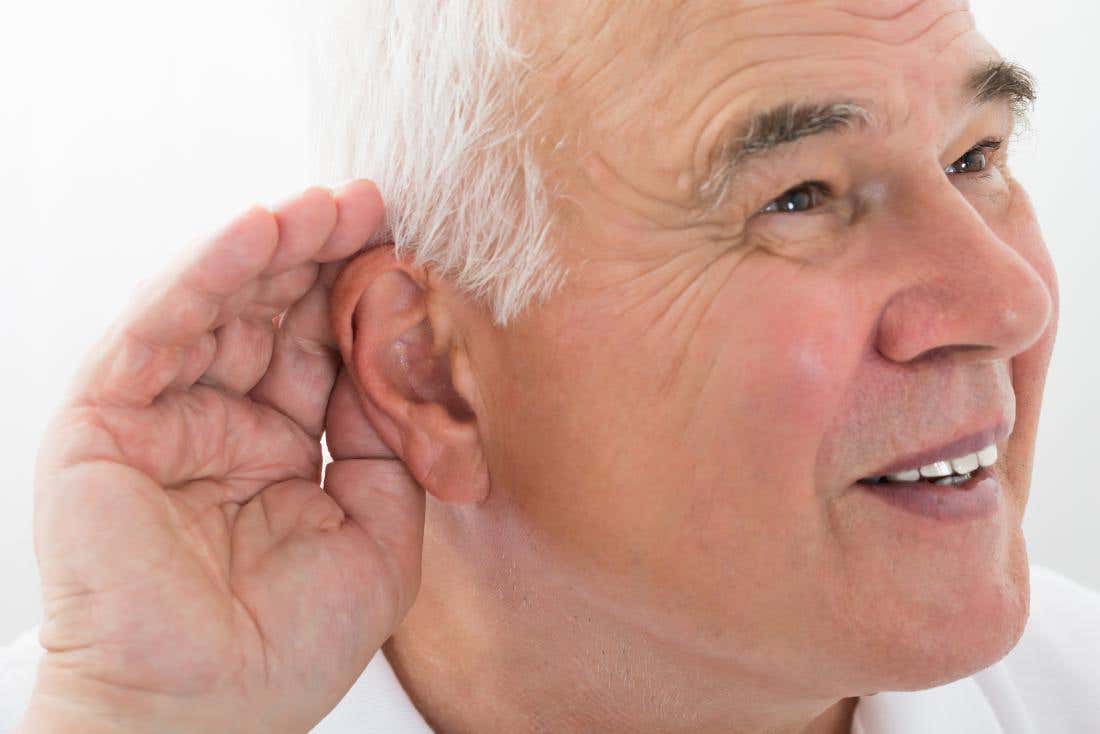Hearing impairment linked to Parkinson’s disease risk
Hearing loss linked to a 57% higher Parkinson’s risk. New research underscores the importance of auditory health in diagnosis and prevention strategies.

A study finds hearing impairment increases Parkinson’s risk by 57%, highlighting the need for auditory health in prevention and care. Early diagnosis is key. (CREDIT: CC BY-SA 4.0)
Hearing impairment has emerged as a potential risk factor for Parkinson’s disease, a progressive neurodegenerative disorder that primarily manifests with motor impairments like tremors, rigidity, and bradykinesia.
While Parkinson’s is often recognized for these motor symptoms, non-motor symptoms—such as sleep disturbances, depression, and cognitive decline—frequently precede the motor signs by several years. Understanding the potential early indicators of Parkinson’s is critical for improving diagnosis and care.
Research led by Lancaster University and published in the journal, Parkinsonism & Related Disorders, sheds light on the possible connection between hearing loss and Parkinson’s.
A study analyzing data from the UK Biobank, a biomedical database with information from over half a million participants, investigated whether hearing impairment measured through a speech-in-noise test could be an early warning sign or risk factor for Parkinson’s.
The analysis included 159,395 individuals free from Parkinson’s at baseline, who underwent a Digit Triplet Test (DTT) to measure speech reception in noisy environments.
Over a median follow-up period of 14.24 years, 810 participants were diagnosed with Parkinson’s. The findings revealed a 57% increased risk of developing Parkinson’s for every 10-decibel increase in baseline hearing impairment. This result aligns with earlier studies suggesting that clinically diagnosed hearing loss increases Parkinson’s risk by 1.5 to 1.6 times within 2-5 years of follow-up.
The connection between hearing loss and neurodegenerative diseases isn’t entirely new. Previous research has shown that hearing impairment significantly increases the risk of dementia, with mild hearing loss doubling the risk, moderate hearing loss tripling it, and severe hearing loss increasing it nearly fivefold over 12 years of follow-up.
The underlying mechanisms linking hearing loss to neurodegenerative diseases remain unclear but may involve shared pathologies such as mitochondrial dysfunction, neurovascular abnormalities, and oxidative stress.
In Parkinson’s, the degeneration of dopaminergic neurons in the substantia nigra and the accumulation of α-synuclein protein aggregates are hallmark features. Similar pathophysiological mechanisms, including mitochondrial oxidative damage and disruptions in neurovascular coupling, are implicated in both hearing loss and Parkinson’s.
This overlap suggests a potential common cause for the two conditions. However, whether hearing impairment is a causal factor or merely correlated with Parkinson’s remains uncertain.
Related Stories
Dr. Megan Readman, the study’s lead author and ESRC Postdoctoral Research Fellow at Lancaster University, emphasized the significance of these findings. “This is one of the first studies to investigate how hearing impairments might increase the risk for Parkinson’s or serve as an early warning sign,” she stated. Dr. Readman also highlighted the importance of considering auditory function in Parkinson’s diagnosis and follow-up care.
While the study’s findings underscore a potential link between hearing impairment and Parkinson’s, inconsistencies in the literature complicate the narrative. For instance, some studies using self-reported hearing capabilities have found no significant association with Parkinson’s. In contrast, objective measures like the Digit Triplet Test have demonstrated stronger correlations.
The study’s authors acknowledge the need for further research to clarify this relationship. Large-scale cohort analyses incorporating alternative auditory measures and controlling for factors like hearing aid use are essential to address current inconsistencies. Hearing aids, for instance, have shown some potential in mitigating cognitive decline over short periods, but evidence supporting their long-term benefits remains inconclusive.
Professor Christopher Plack, a co-author of the study, noted, “It is increasingly clear that hearing loss is not an isolated condition but is associated with several other disorders. Understanding these links is vital for effective patient care, improving independence and quality of life.”
The study’s findings contribute to a growing body of evidence suggesting that sensory impairments could serve as early indicators of neurodegenerative diseases. Rapid Eye Movement Sleep Behavior Disorder, for example, is a strong predictor of Parkinson’s, with nearly 45% of individuals who experience this disorder eventually developing the disease.
By identifying factors that may contribute to Parkinson’s onset, researchers aim to develop new strategies for prevention and intervention. The study’s findings highlight the potential benefits of addressing auditory function as part of a comprehensive approach to Parkinson’s care. Early diagnosis and management of hearing impairment could offer a window of opportunity for mitigating disease progression.
Professor Trevor Crawford, another co-author, remarked, “This important study is the latest discovery in a decade-long series of research on neurodegenerative disorders. Our collaborative efforts aim to unravel the complex interplay between sensory impairments and neurological conditions.”
Hearing loss has also been linked to other health outcomes, such as cognitive decline and social isolation, which can exacerbate symptoms of neurological diseases. Addressing auditory health could therefore improve overall quality of life for individuals at risk of Parkinson’s and related conditions.
While this research provides valuable insights, it raises several unanswered questions. Does hearing loss directly contribute to Parkinson’s pathology, or is it an early symptom of a shared underlying condition? Could interventions targeting hearing loss delay the onset or progression of Parkinson’s? These questions warrant further investigation through longitudinal studies and clinical trials.
The study’s authors advocate for a multidisciplinary approach to neurodegenerative research. Collaboration between audiologists, neurologists, and researchers is essential for understanding the complex relationships between sensory impairments and neurological diseases. As the global burden of Parkinson’s continues to rise, identifying modifiable risk factors like hearing impairment could have far-reaching implications for public health.
Dr. Readman concluded, “Our findings underscore the importance of addressing auditory function in Parkinson’s diagnosis and follow-up care. By shedding light on these links, we hope to pave the way for new strategies in prevention and patient care.”
Additionally, public health initiatives aimed at promoting regular hearing screenings and early intervention could play a pivotal role in reducing the incidence of neurodegenerative diseases. These efforts may also help alleviate the social and economic burden associated with conditions like Parkinson’s.
Professor Plack emphasized the need for increased awareness: “Understanding the broader implications of hearing loss is crucial for improving health outcomes. We must prioritize hearing health as part of routine care for at-risk populations.”
The study also highlights the importance of long-term data collection and analysis. Large-scale biobanks like the UK Biobank provide invaluable resources for examining the interplay between genetic, environmental, and lifestyle factors in disease development.
Continued investment in such initiatives will be critical for advancing our understanding of Parkinson’s and other neurodegenerative disorders.
In conclusion, hearing impairment may serve as a significant risk factor for Parkinson’s, underscoring the need for integrated care approaches that address both auditory and neurological health.
By identifying and managing sensory impairments early, healthcare providers can potentially improve outcomes and quality of life for individuals at risk of Parkinson’s.
Note: Materials provided above by The Brighter Side of News. Content may be edited for style and length.
Like these kind of feel good stories? Get The Brighter Side of News' newsletter.
Rebecca Shavit
Science & Technology Journalist | Innovation Storyteller
Based in Los Angeles, Rebecca Shavit is a dedicated science and technology journalist who writes for The Brighter Side of News, an online publication committed to highlighting positive and transformative stories from around the world. With a passion for uncovering groundbreaking discoveries and innovations, she brings to light the scientific advancements shaping a better future. Her reporting spans a wide range of topics, from cutting-edge medical breakthroughs and artificial intelligence to green technology and space exploration. With a keen ability to translate complex concepts into engaging and accessible stories, she makes science and innovation relatable to a broad audience.



